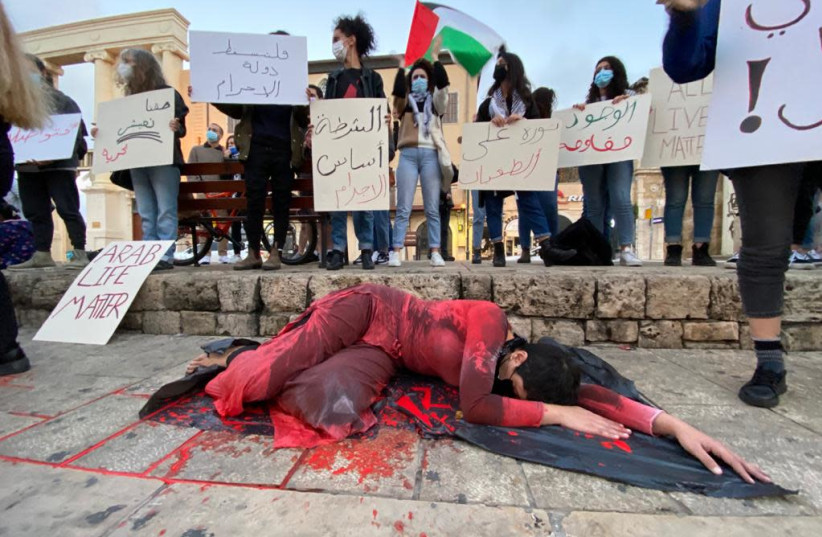There are many reasons for the rise of crime in Israel – in both the Arab and Jewish sectors.
Some of the reasons are lenient prison sentences, a breakdown of societal solidarity and a nation awash in illegal weapons. Another reason is a weak police force.
By weak, we mean woefully understaffed and scandalously underpaid – and the two things are interrelated.
Poor salaries mean that those in the force will continuously look elsewhere for greener, less stressful pastures. (Let’s face it, being a cop is a dangerous job with bad hours.) According to National Security Minister Itamar Ben-Gvir, some 1,030 officers left the police force last year.
Poor salaries also mean that the police will have difficulty recruiting new, quality officers. The people attracted to a job in the police will be different if the starting take-home salary is NIS 10,000, as opposed to some NIS 7,000, which is the case now.

If the salaries are low, more people will quit and fewer will be keen on making law enforcement their career choice. It logically follows that the police will be understaffed. An understaffed police force means there will not be enough cops walking a beat or issuing tickets for cars passing dangerously on the roads. It means there will not be enough officers to investigate crimes or pursue lawbreakers.
And it means that one of the central services that governments are meant to provide – security for residents – is not being adequately delivered.
Ben Gvir's solutions to crime
The main reason for Ben-Gvir’s massive success in the last election was his promise to make the streets safe and to restore deterrence. He tapped into a widespread sense of a lack of personal security, and his campaign promise to restore that security resonated loudly across the country. One way to restore that sense of security is by significantly increasing police pay and expanding the police force.
Ben-Gvir warned during the election campaign that riots in the mixed Jewish-Arab cities of the sort that traumatized the country during Operation Guardian of the Walls in 2021 were just around the corner. At a Tuesday press conference, he announced plans to increase the police force by some 4,000 officers and to increase police pay by 20% to 40%. In radio interviews on Wednesday, he indicated that this would cost the state some NIS 14 billion over the next two years. The national security minister gave no indication of where those funds would come from.
While taking issue with Ben-Gvir’s use of the Arab bogeyman to justify this expenditure – his waving threats of a second round of Operation Guardian of the Walls riots does just that – we do believe that such an allocation for the police is worthwhile and would be money well spent.
Israelis need to see more police everywhere. Random beatings on the street, extorting businesses for protection money, theft of agricultural equipment, gangland shootings, “honor” killings, and car bombs – these are problems that no one magic wand will solve. But enlarging the police force is an excellent place to start, and one way to do that is to provide good salaries that will attract new officers and ensure that the older ones will not leave the force and go elsewhere.
There will be some who will reject Ben-Gvir’s proposal, as well as his plan to implement a previous government decision to establish a National Guard with expertise in dealing with rioting Israeli citizens. It’s not because these ideas are unsound, but rather because Ben-Gvir is the one who is behind them.
But this is short-sighted.
Yes, Ben-Gvir has made despicable comments in the past and done some very bad deeds. One may question whether, with his record, this is the type of person Israel should have in its government – including in the security cabinet, making life-and-death decisions.
However, by virtue of the last election, Ben-Gvir is in the government as the minister in charge of the police. If he can strengthen and improve the police, thereby giving Israelis – all Israelis – greater security, then that is good for everyone, and reasonable steps he promotes in that direction should be welcomed.
A bigger police force and higher police salaries are two such steps.
